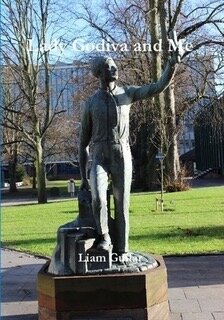Reviews by book. Links to online reviews open in a new window.
A Presentment of Englishry
Reviews of A Presentment of Englishry
‘Guilar’s poetic wand recreates for the reader a world of the past which stands vividly in the here-and-now’
‘That scraping of a surface to reveal what lies beneath the current manuscript allows us to recognise the continuity of our histories and the Coda with which Guilar brings this extraordinarily powerful sequence of poems to a conclusion is worth reflecting upon as we contemplate a future:
We stood our ground at Ethendun, Stamford Bridge and Senlac Hill
then bartered, buggered, battered ground into the soil
from Agincourt to Waterloo; we fell in well-drilled rows
in Somme slime screaming there is a corner of some foreign
field that is forever foreign. Smashed scorched and sunk
for Drake to Jellicoe. Hatred handed down amongst the people
we defeated, and we reviled by those we did the fighting for.
And in the world of Hugh Kenner’s The Pound Era that is how the past exists, stray words and random things recorded:
The imagination augments, metabolizes, feeding on all it has to feed on, such scraps.
Liam Guilar’s reconstruction of the foundations of our past is a convincing sift of details that offers the reader a ‘morning familiar as cold stone’ with ‘Rain drifting through the smoke hole in the roof.’
You can read the rest of Ian Brinton’s review by clicking on the link below.
http://longpoemmagazine.org.uk/reviews/a-presentment-of-englishry/
Lady Godiva and Me (2nd Ed)
From Reviews of Lady Godiva and Me
Guilar has brought together a cast of characters that speak out of history and from the present time, real people who live and breathe with engaging frankness. They are varied in personality, held here in small jewels of poetry that sparkle with wit and strength. These are people worth meeting.
Joanna M. WestonPoetryreview Ca.
You can read the full review here:http://poetryreviews.ca/reviews/lady-godiva-and-me-by-liam-guilar/
Guilar’s educational background is in medieval literature, and his knowledge of Old and Middle English emerges in these short poems, their odd and often jarring amalgam of ancient and modern portraying a modern-day Coventry which seeks — not always successfully — to reconcile itself with its medieval past. Old English words are skilfully interwoven with modern English, while medieval characters such as Peeping Tom, Leofric and Godgifu provide a daring counterbalance to Guilar’s own reminiscences of his Coventry childhood.
Jane Holland. Drinking Beowulf’s Blood: The Influence of Old English on Contemporary Poetry
I am impressed by the writing, which demands full and careful attention. To read these poems, the reader must inhabit the world, or the voices, of the writing; must engage with the rhythms, and the spare poetic structures. The poems are conversational, in the sense that they are made to be read aloud as well as on the page; but their sometimes declaratory structures are tight and taut without being confining.
Bronwyn LevyReview of Lady Godiva and Me. Text
You can read the full review here http://www.textjournal.com.au/oct09/levy_rev.htm
Rough Spun to Close Weave
Available from Ginninnderra Press http://www.ginninderrapress.com.au/poetry.htm
Copies, both print and electronic are also available from the American and Uk versions of Amazon.
You can also buy signed copies from the shop page on this website.
Firmly rooted in the past, these poems branch out from Old English and traditional ballads to the language of televised archeology and the travel guide, twisting from folk song to fairy tale to cafe gossip. In a tangled conversation between past and present, the voices of Vikings, poets, lovers, talking skulls, shipwrecked sailors, house painters, disgruntled middle managers, migrants and others jostle each other on their intricate journey from Rough Spun to Close Weave.
978 1 74027 777 8, 74pp
DAVID McCOOEY's Introduction to Rough Spun to Close Weave
Book launch at the AAWP Conference: November 2012
One of the misconceptions about poetry is that it is a kind of code. A reader needs to know the code, such thinking goes, in order to extract the meaning from that poem, just like one needs a nut-cracker to extract a nut from its shell. I must admit to wondering if Liam may have been speaking in some kind of special private code, aimed directly at me, in this book. I am an associate supervisor for Liam’s creative PhD thesis which is a thesis made up of a creative component and an exegesis. As such, I wondered if he was telling me something in ‘Ghost Fences’ with this line: ‘This needs no exegesis’. Of course, such a paranoid, narcissistic reading is as wrong-headed as the poetry-as-code idea (which is also often underwritten by paranoia and narcissism).
Any reading of a poem is in itself a kind of exegesis, since the creative play of writing poetry is mirrored in the creative, interpretive act of reading poetry. Two years ago I launched another book, at another AAWP conference: Kevin Brophy’s Patterns of Creativity. In that book we read that ‘Poetry, like evolution, is an improvisational group event. And as with evolution, its nature is change, its basis is in reproduction (imitation), and its method is blind’ (p. 90). No poet can entirely ignore the past. To be utterly original would mean being unintelligible. But one cannot simply repeat the past. The tension between repetition and innovation that we find in evolution is central to poetic discourse, as Kevin suggested.
Kevin’s analogy is especially pertinent with regard to the book I am launching here today. As in Liam’s other books of poetry, Rough Spun to Close Weave is a concentrated and highly original essay on the relationship between the present and the past, on the evolution of poetry. It demonstrates repeatedly that there is no vision without revision. Guilar’s strength lies in his bold appropriations of earlier poetic traditions, in particular the Anglo-Saxon tradition. Indeed, the book opens with an untitled prologue that reminds the reader that ‘These words worked the long day Harold died, / when Norman French swept up the slope of Senlac Hill / and English grammar broke and bled into the dusk’.
As this suggests, Liam continues the great modernist project of apprehending the continuities between the quotidian, history, and myth. As part of this project, Rough Spun to Close Weave matches the everyday with the elemental: lakes, harbours, journeys, wars. A landscape becomes ‘Three bands of colour. Above the endless / empty blueness of the sky, bleached by the sun. Between, the ragged stripe of forest green. / Below, the blue-grey lake’. (‘Ghost Fences 2’).
The continuity between the everyday and the elemental occupies a paradoxical place amid a modernity that Liam shows up alternatively as abysmal, comic, or disturbing. As ‘What I Learnt from Watching Television Archaeology’ illustrates, Liam relies on a wide variety of modes to chart his vision. These include chronicles, modern history, television, fairy tales, ballads, travel writing, and Arthurian romance.
Liam’s poems are profoundly concerned with place: how we imagine it, how we move through it, how it haunts us. This is most apparent in one of the book’s key works, ‘Talking Nothing to the Stone’, a work that meditates on personal memory, history, and myth as those things intersect in a particular place (in this case, Coventry in England). In a poem about the dispersal of people, memories, and stories, Liam notes that ‘It’s only exile if you have no curiosity’.
This is a book that is underwritten by an intense curiosity, and what is a poet if not curious about the world? Liam likes to end his emails with the phrase ‘All good things’. In signing off here, I suggest you read this book: it is full of ‘all good things’.
DAVID McCOOEY
Review of Rough Spun to Close Weave in the Quarterly Review.
Liam Guilar – medievalist and modernist
Rough Spun to Close Weave
Liam Guilar, Ginninderra Press: Port Adelaide, Australia
'M.W. DAVIS is captivated by the precise but passionate imagery of a poet who draws from the Middle Ages as much as the present'
You can read the full review here: http://www.quarterly-review.org/liam-guilar-medievalist-and-modernist-m-w-davis/



